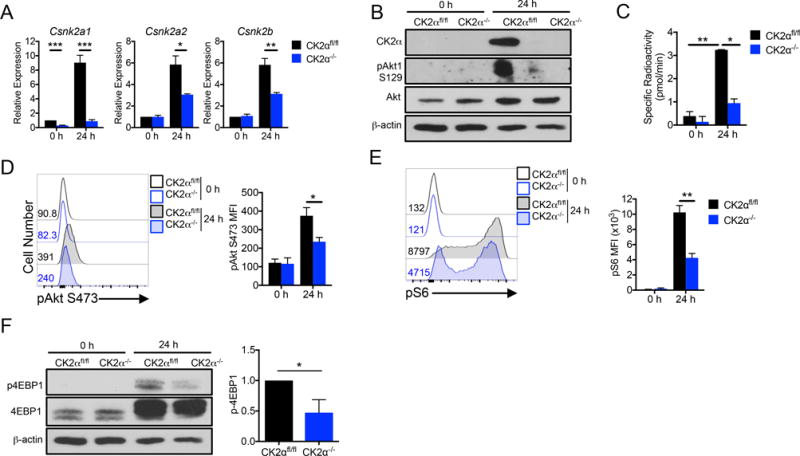Figure 2. CK2α Deficiency in CD4+ T Cells Results in Decreased CK2 Kinase Activity and Akt/mTOR Signaling Upon Activation.

Naïve CK2αfl/fl and CK2α−/− CD4+ T cells were activated with plate-bound anti-CD3 (10 μg/ml) and soluble anti-CD28 (1 μg/ml) antibodies for 24 h. (A) RNA was extracted and qRT-PCR performed using primers for Csnk2a1 (CK2α), Csnk2a2 (CK2α′) and Csnk2b (CK2β); n=4. (B) Cells were lysed and immunoblotted for CK2α, phosphorylated Akt S129, total Akt and β-actin. (C) Cells were assayed for CK2 kinase activity; n=2 technical replicates. Representative experiment of 3 individual experiments is shown. (D, E) Phosphorylated Akt S473 and S6 ribosomal protein S235/236 were detected by flow cytometry; pAkt, n=3; pS6, n=4. (F) Cells were lysed and immunoblotted for phosphorylated 4EBP1 T37/46, total 4EBP1 and β-actin. *p < 0.05, **p < 0.01.
